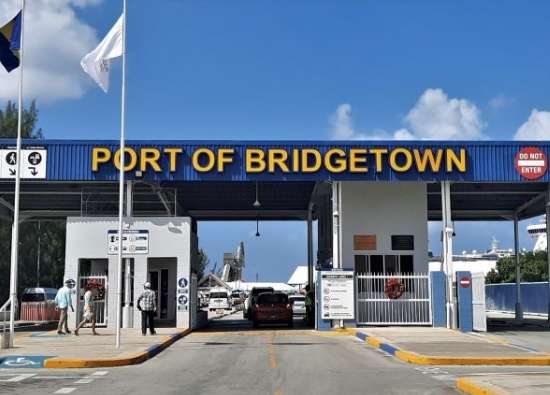Barbados Port Manages Passenger and Freight Traffic Amidst Upcoming Berth Construction and Potential Cargo Disruptions.
The Port of Bridgetown in Barbados currently operates as a dual-purpose facility, catering to both cargo and cruise ships. This delicate balancing act requires careful coordination and prioritization to minimize conflicts and ensure customer satisfaction. However, the port’s dual nature occasionally leads to operational challenges, particularly during the peak cruise season. A recent example highlighted this predicament: on December 10, 2024, four cruise ships, including the massive MSC Virtuosa, occupied all available berths, necessitating a “no cargo” day. This meant that no cargo operations could take place during daytime hours, impacting the flow of goods through the island nation. While this situation underscores the current limitations, it also emphasizes the urgency of the port’s ongoing expansion and modernization plans. The development of a dedicated cruise terminal and the construction of a new berth are pivotal steps towards resolving these operational conflicts and ensuring the port’s future viability.
The increasing popularity of Barbados as a cruise destination has led to a surge in cruise ship arrivals, placing significant strain on the port’s existing infrastructure. The port anticipates 42 “no cargo” days during the peak cruise season, from October 2024 to April 2025, a testament to the growing dominance of the cruise sector. This prioritization of cruise ships, a long-standing policy, underscores the significant economic contribution of the cruise industry to Barbados. However, it also necessitates careful planning and communication with cargo operators to minimize disruptions to the flow of essential goods. The port employs a proactive approach, holding daily operational meetings with stakeholders, including vessel agents and representatives, to ensure smooth coordination and address potential conflicts. This ongoing dialogue is crucial for maintaining operational efficiency and mitigating the impact of “no cargo” days on cargo operations.
Addressing a specific incident involving the container ship JPO Aquila, the port clarified that the ship’s bypassing of Bridgetown was not due to the “no cargo” day, but rather due to prior delays in Trinidad. This clarification highlights the complexity of maritime logistics and the ripple effects that delays in one port can have on subsequent destinations. The JPO Aquila’s situation serves as a reminder that the smooth functioning of port operations requires a delicate balance and careful coordination across multiple locations. Even if the “no cargo” day had not been in effect, the JPO Aquila would still have missed its scheduled arrival in Bridgetown. This incident underscores the importance of accurate information dissemination and proactive communication to avoid misinterpretations and maintain transparency in port operations.
The Port of Bridgetown remains committed to serving both its cruise and cargo customers effectively. Recognizing the challenges posed by the increasing volume of cruise traffic and the limitations of existing infrastructure, the port has implemented measures to enhance operational efficiency and minimize disruptions. These measures include extending working hours on weekdays and weekends to accommodate both cruise and cargo operations. Despite the inherent challenges, the port continues to handle significant cargo volumes, demonstrating its dedication to facilitating trade and supporting the local economy. The port’s commitment to continuous improvement and its proactive approach to addressing challenges are crucial for ensuring its continued success and contribution to Barbados’ economic growth.
The challenges faced by the Port of Bridgetown are not unique; many ports worldwide grapple with the complexities of accommodating both cruise and cargo operations. The increasing size of cruise ships, coupled with the growing demand for cruise tourism, presents significant operational challenges. The Port of Bridgetown’s experiences provide valuable insights into the complexities of managing a dual-purpose port in a dynamic maritime environment. The port’s ongoing expansion plans, including the construction of a new berth and a dedicated cruise terminal, are indicative of a forward-thinking approach to addressing these challenges and ensuring the port’s long-term sustainability.
The construction of Berth 6, a $108 million project slated for completion in June 2025, represents a pivotal step towards resolving the conflicts between cruise and cargo operations. This new berth will provide much-needed capacity and flexibility, enabling the port to handle both types of vessels simultaneously. Furthermore, the port’s long-term vision includes the complete separation of cruise and cargo activities, with dedicated facilities for each. This strategic approach will not only enhance operational efficiency but also improve the overall customer experience for both cruise passengers and cargo operators. The Port of Bridgetown’s ongoing investments in infrastructure and its commitment to modernization position it well to meet the evolving demands of the maritime industry and contribute significantly to Barbados’ economic future. The port’s proactive planning and investment in infrastructure are crucial for maintaining its competitiveness and ensuring its long-term sustainability in the face of increasing demand and evolving industry trends.
Share this content:












Post Comment